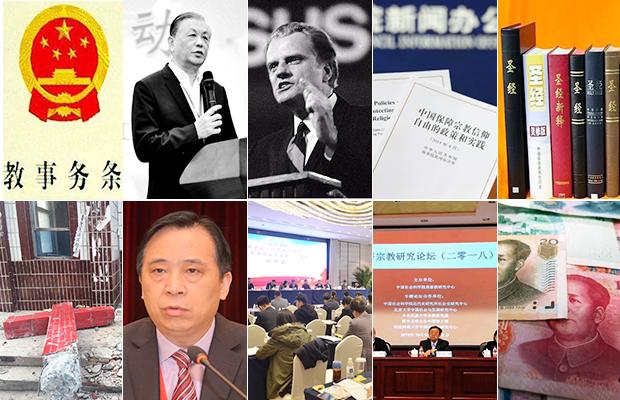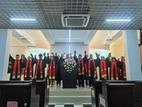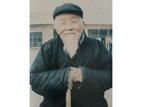The year 2018, marking the 40th anniversary of reform and opening up, signifies a phase of rapid change and development of Christianity in China. It also marks a turning point in tremendous transitional period.
Based on the coverage from the Gospel Times and the Christian Times, two online Chinese Christian newspapers reporting about the registered and unregistered church respectively, we have selected the top 10 Christian news stories of 2018 based on the number of views, keyword searches, shares, and prominence of articles.
Here are the top 10 news items of 2018 about Christianity in China.
1. The revised regulations on religious affairs was complemented in February; hereafter, a series of relevant legislation was issued.
On February 1, 2018, the revised regulations on religious affairs published in September 2017 came into effect.
Before the new rule was carried out, the 2005 regulations had a profound effect on shaping church-state relations for the past 12 years. The specific enforcement of the new rule and its future influence have attracted great attention from the church across China.
On Feb. 4, China released policies under the "No. 1 central document", bringing the governance of rural religion into the rural governance model.
Eighteen days later, the State Administration for Religious Affairs (SARA) promulgated the regulations on the approval and management of temporary sites for religious activities that concern how village, town, and street offices deal with house churches.
In July, the government of Xiling District, Yichang, Hubei province launched a guide for the approval service of temporary places of worship for religious activities. The government of Taizhou District, Fuzhou, Fujian province also released different documents on the declaration and approval of temporary religious places for individuals, social groups and organizations.
On Sept. 10, SARA released a draft guideline on managing religious information services on the Internet, which would be China's first regulation on religious messaging services.
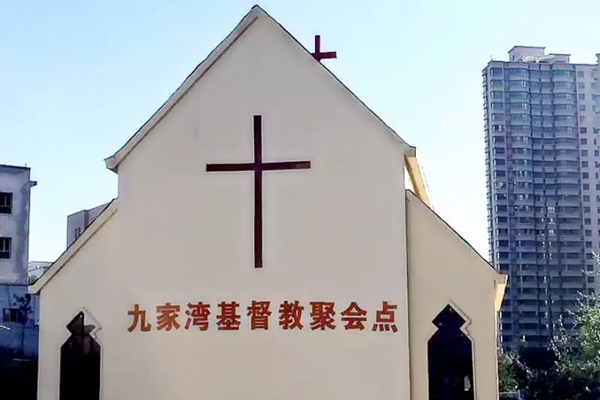
2. A bunch of church leaders passed away.
Bian Yunbo, the famous Chinese house church evangelist who wrote the poem To Unknown Evangelists and assisted Wang Mingdao in his writing ministry, died on February 14, 2018, aged 93. Many pastors and church workers in China paid tribute to his faith and lifelong ministry.
In February and March, official church leaders Rev. Fan Aishi, former vice-president of the Zhejiang China Christian Council and president of the Zhejiang Theological Seminary, Rev. Mo Ruxi, a former vice dean of Nanjing Union Theological Seminary (NUTS), and Rev. Xu Enci, former president of the Nanjing CCC, passed away.
The Chinese theologian and pastor Chen Zemin, honorary retired president of Nanjing Union Theological Seminary(NUTS) and former president of the CCC, died of an illness in Nanjing in June, aged 101.
On Aug. 20, 2018, Elder Fu Xianwei, chairman of Three-Self Patriotic Movement, died in a Shanghai hospital, aged 74.
A Beijing pastor, Li Ke and a Gansu elder, Jiang Enzhen passed away in November and December, respectively.
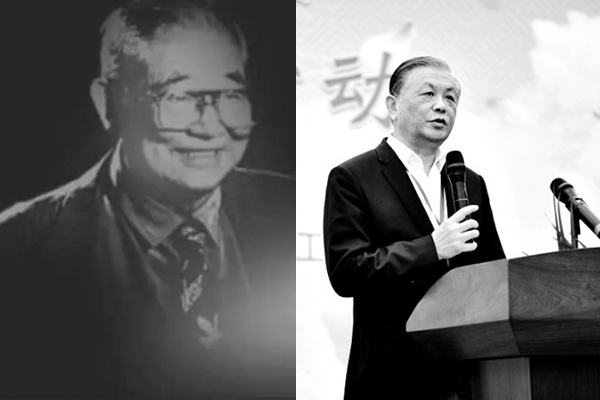
3. Evangelist Billy Graham, whose family has had a friendship with China for generations, passed away at 99.
World-renowned evangelist Billy Graham passed away at the age of 99 at his North Carolina home on February 21, 2018, local time. Graham was considered by many as the Evangelist to the World, preaching Christ's gospel to almost 215 million people who attended his crusades, simulcasts and rallies in 185 countries around the world.
This American was also called "China's son-in-law". Behind the name were the Chinese hearts of Lemuel Nelson Bell, his father-in-law, a medical missionary in China, and the rich heritage of his wife Ruth, a "daughter of Huaiyin" who dreamed to preach the gospel in Tibet.
In 1988, the Grahams were invited to visit China and were met by Prime Minister Li Peng. They also paid a visit to the churches in Beijing, Nanjing, Huaiyin, Shanghai, and Guangzhou.
Since then, the Billy Graham Evangelistic Association (BGEA) established an official connection with the Chinese church. Exchange visits often occurred. Billy Graham's son Franklin and grandson Will held evangelistic crusades in China several times and visited Ruth's birthplace.
The registered Chinese church gained support from the association through the China Bible Ministry Exhibition held in the United States in 2006 and 2011.
On March 2, Shan Weixiang, vice-president of the China Christian Council, attended the memorial service for Billy Graham that was held in Charlotte.
On Sept. 28, China's top sculptor and painter Yuan Xikun donated his two bronze statues to honor the late Billy Graham. The unveiling ceremony of the sculptures, one entitled Billy Graham as Messenger of Hope and the other Billy Graham as Sower, took place at the North Carolina-based ministry. This world-renowned sculptor regarded these sculptures as his final works to commemorate the preacher's great life, his global influence, and relationship with China, especially his evangelistic contributions to the country.

4. China released the white paper on protecting freedom of religious belief: nearly 200 million Chinese believers including 38 million Protestants.
On April 3, 2018, the State Council Information Office released a white paper entitled "China's Policies and Practices on Protecting Freedom of Religious Belief".
According to the paper, "The major religions practiced in China are Buddhism, Taoism, Islam, Catholicism, and Protestantism; with a total of nearly 200 million believers and more than 380,000 clerical personnel."
It stated that Protestantism has 38 million followers in China with 57,000 clerical personnel in 60,000 Protestant churches and places of assembly. China has printed over 160 million copies of the Bible in more than 100 different languages for over 100 countries and regions, including 80 million copies printed in the Chinese language, 11 ethnic minority languages and braille for churches in China. By Sept 2017, there were 91 religious schools in China including 21 Protestant schools.

5. China banned online Bible sales.
In early April, the Bible was forbidden for online sale at popular shopping websites such as Jingdong and Taobao. All products including books with the keyword "Bible", were pulled off the shelves, but legal publications related to the keyword "Christianity" are still available.
What had been neglected for a long time was the publication and distribution of the Bible in mainland China, inside the church rather than through presses. The Bible is considered an internal publication without ISBN.
According to the law of publication, the Bible is not allowed to be sold on social platforms. It was removed as the regulation for illegally published books among online bookstores was implemented.
Rumors emerged online that the country forbade the sale of Bibles and wanted to edit the Bible. Some even deliberately interpreted the move as a ban on the circulation of the Bible and all Christian books.
The CCC & the TSPM regarded these rumors as fake news and said that believers could still get access to the Bible inside the church.
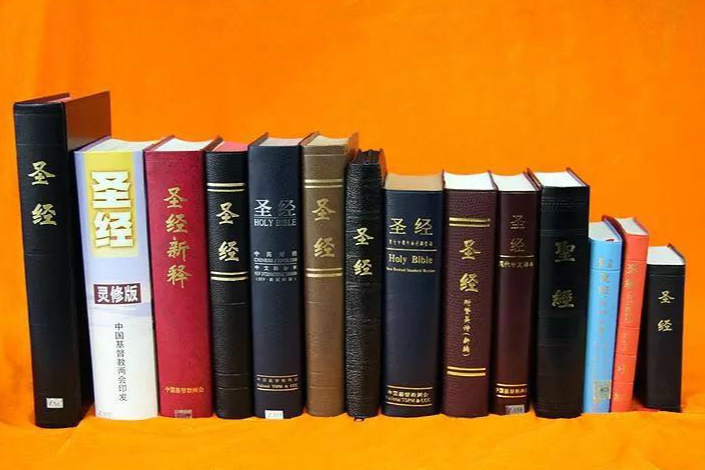
6. The "cross removal" campaign struck Henan.
In early 2018, rumors were spread on the Internet that Sunday schools were forbidden for children and youth and that Communist Party members were not allowed to enter churches in some places of Henan.
In August, the situation continued to fester across Henan. Pictures and videos of the forced removal of church crosses in Henan were published and some local governments tried to persuade Christian villagers to quit attending churches. Some churches were affected and surprised by unannounced visits, while others were destroyed, and still some others merged. These incidents caused heated online discussion and huge reactions among the Chinese Christian community.
Signs saying that minors and Party members were not allowed to attend church were placed on all registered churches in cities such as Anyang, Zhengzhou, Nanyang, and Xuchang. National flags were also put on local churches.
Faced with threats that churches would be pulled down if crosses were not removed, most churches actively or passively tore down their crosses, believing that the existence of their churches was more important.
The crackdown was a major provincial-level so-called "rectification" of Christianity in Henan. The "reform" also covered the introduction of religious regulations, core socialist values, and Party material into churches as well as the abolishment of some theological training programs and the re-assessment of preachers.
Both registered churches and house churches in Henan were strongly hit.
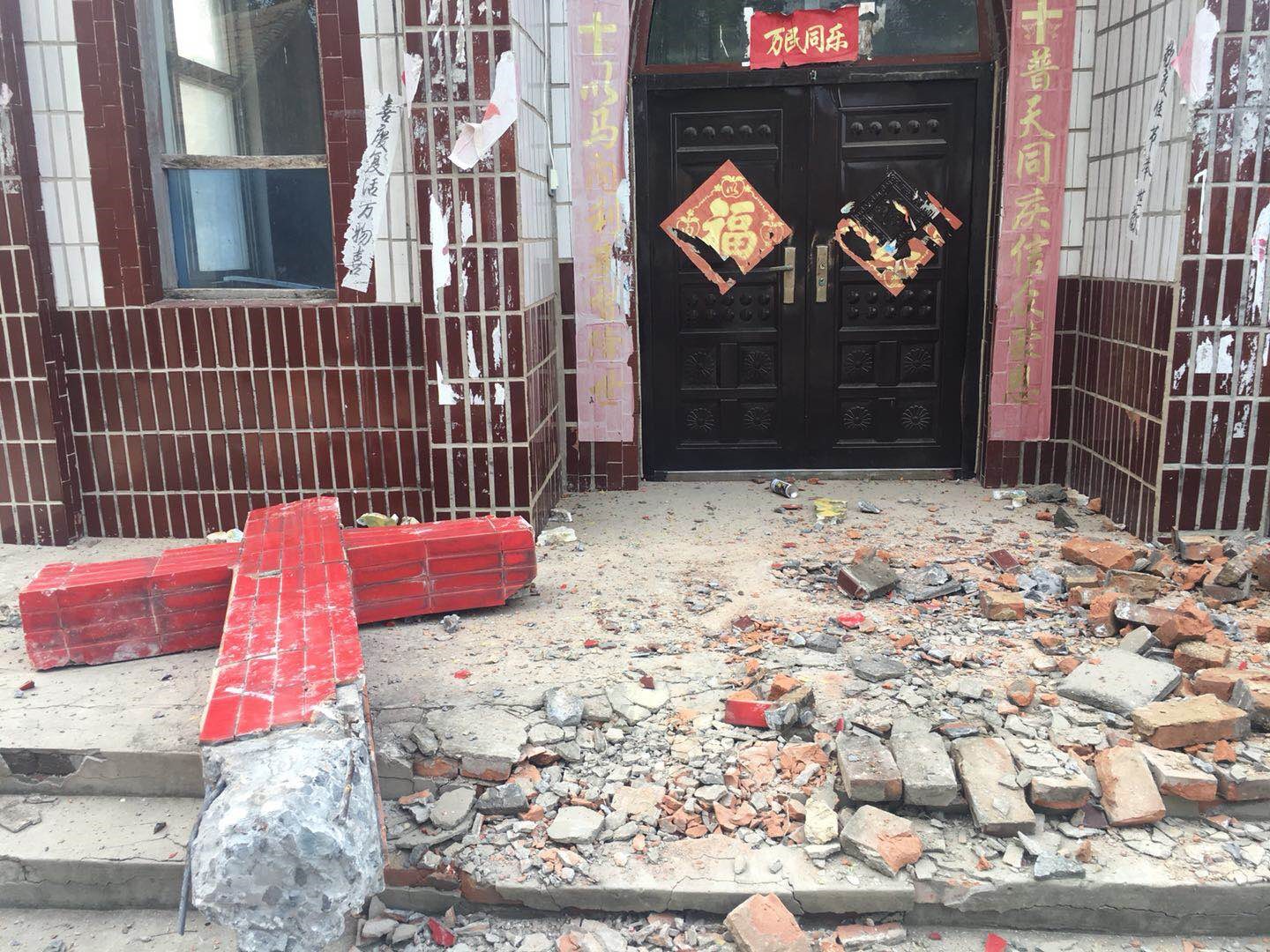
7. The tenth national congress of CCC&TSPM kicked off.
On November 28, 2018, the tenth national Chinese Christian conference kicked off in Beijing, attended by 320 representatives from across China, according to the China Christian Council (CCC) & Three-Self Patriotic Movement (TSPM).
A new leadership team was elected with Rev. Wu Wei as chairman of the eighth CCC, and Rev. Xu Xiaohong as president of the tenth TSPM.
The committee approved the newly revised constitution of the church in China, the resolution on implementing the arrangements for the five-year plan (2018-2022), and launched initiatives on carrying forward and practicing core socialist values.
Rev. Gao Feng, former president of the CCC, gave a report on the CCC & TSPM's work over the past five years. He summarized by saying that there were about 38 million Christians, 60,000 churches, 14,000 clergy personnel, 22,000 full-time preachers, and 22 seminaries. A total fund of 27.7 million yuan was put into social service ministries and approximately 18 million copies of the Bible were distributed. Seven international conferences were held as well.
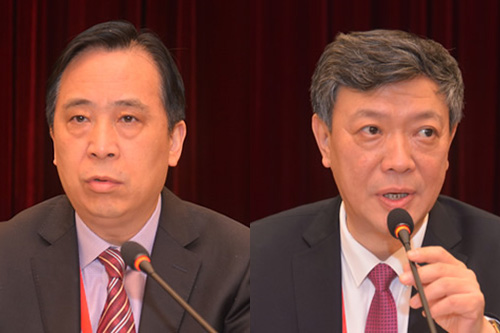
8. The Chinese church marks the 40th anniversary of reform and opening up and the 20th anniversary of theological construction.
On December 12, 2018, the Chinese Christianity forum commemorated the 40th anniversary of reform and opening up and the 20th anniversary of theological construction was held in Shanghai.
Local churches and Christian organizations across China, including the Beijing YWCA, Zhong Nan Theological Seminary, and the church in Shaanxi, also conducted similar meetings to mark the two themes.
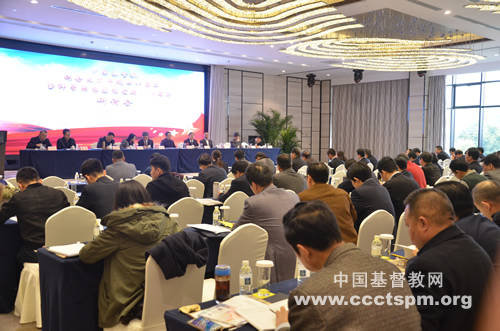
9. A debate over the number of Chinese Christians was ongoing.
At the 2018 Conference on the Study of Christianity held in Beijing on Oct. 20-21, several participants mentioned the number of Chinese Christians. A common conclusion was that Chinese Christians numbered about 39.7 million, far fewer than the rumors of "70 million". This number has not grown, rather stagnated and even turned negative. After the follow up of a long-term study, the Institute of Social Science Survey of Peking University argued that the number of Chinese Christians was around 39.7 million, based on the survey data from China Family Panel Studies (CFPS).
A pastor from Guangzhou claimed that immigration, the inability to adjust to changes in society, and economic affluence that contributed to a jump in the number of Christians no longeer exists. Moreover, some churches have even declined in their membership.
A Shandong pastor's report said, "In terms of Christianity in Shandong, I obviously feel that in our increasingly materialistic and secularized social environment, the number of Christians is on the decline rather than on the rise. This is at least the case with the three-self church in Shandong which is showing a trend for slower growth."
He added that reasons for the inflation of the number of believers were the repeated calculation of rural believers who had migrated to cities, the failure to remove from the membership list the deceased and those baptized Christians who had abandoned their faith, and the exaggeration of numbers due to being socially discriminated against.
Duan Qi, a researcher at the Institute of World Religions of the Chinese Academy of Social Sciences, said that the church in northeastern China has naturally declined in number with the decrease in the number of Korean villages there. What was worse, this phenomenon occurred in many areas.
Chinese Christians expressed two different viewpoints regarding this.
A large percentage of them strongly objected to the numbers, saying that the Chinese government used false data to restrict Christianity so as to leave the impression in society that Christianity was "dwindling".
The other viewpoint was that Christians should just disregard the statistics and the scholars' interpretation because this was just "negging", namely emotional manipulation by outsiders to keep the upper hand.
However, some local pastors said that the conclusions reflected the real situation, which was worthy of reflection.
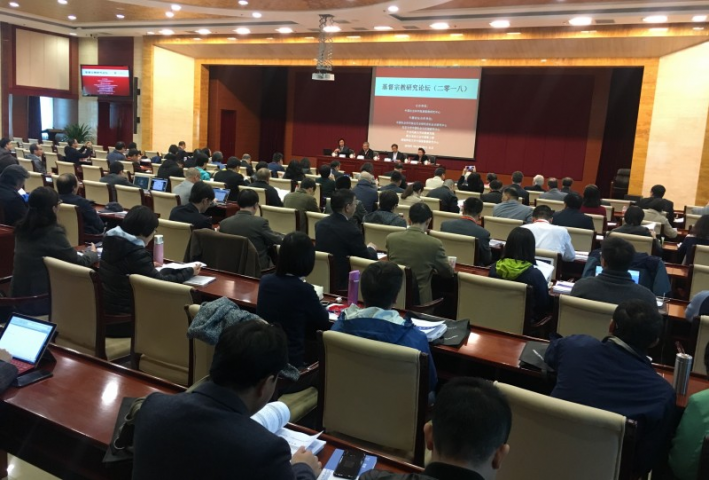
10. Local pastors and believers got heavily involved in direct selling or pyramid schemes.
In recent years, many churches reflected that their pastors, as well as believers, became entangled in pyramid schemes, in some cases even a whole church become involved. A few churches, through announcements, forbade these practices inside the church.
In the church, because of their mutual faith and trust, normal group or fellowship members becoming involved in various scams. For example, some young believers from a church in Shandong used an advanced pyramid scheme that used "virtual currency" in the name of a "blockchain".
The cause for a large portion of grassroots Christians being involved in pyramid selling schemes was that they were only competent in low quality and repetitive work after their failure to get better jobs. These schemes opened the door to selfish desires and greed.
Once a financially disadvantaged Christian and/or preacher was unemployed, the business model was a strong lure for them. Many churches did not expel these individuals because they would give small donations to preachers and steady tithes and offerings to the church. As well, they were not overly aggressive in recruiting new members to the scheme.
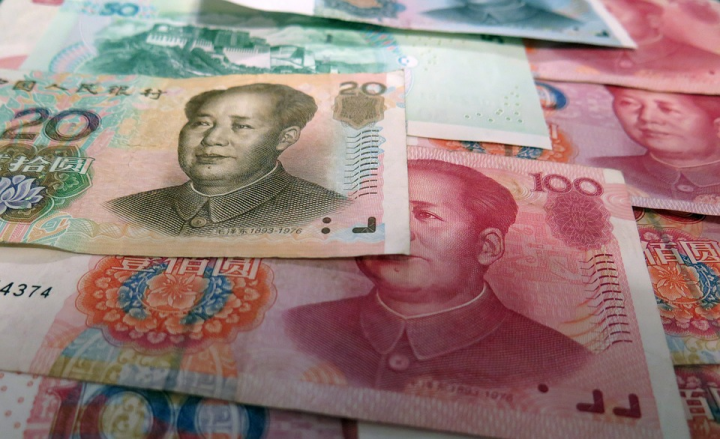
- Translated by Karen Luo

